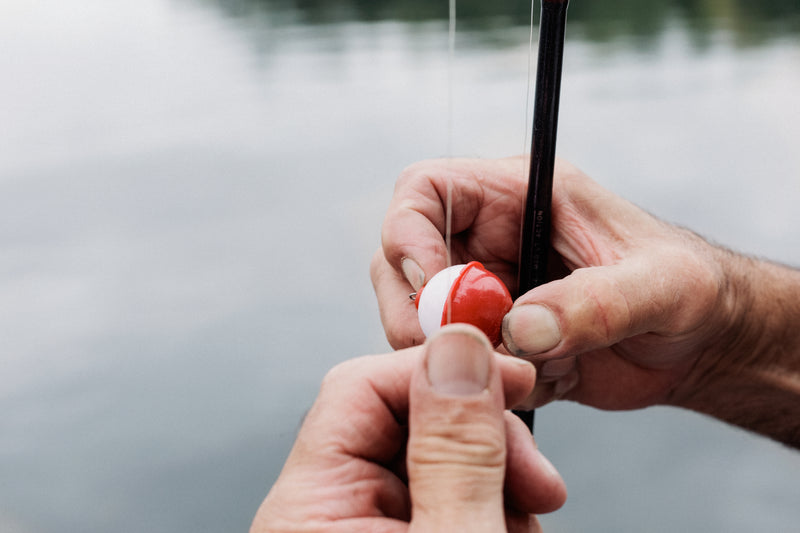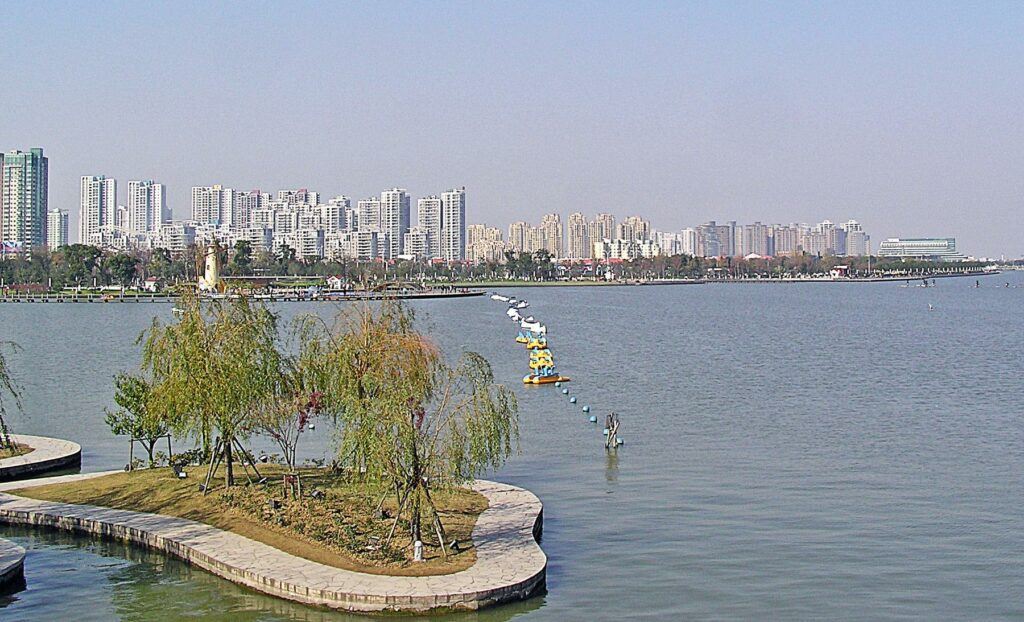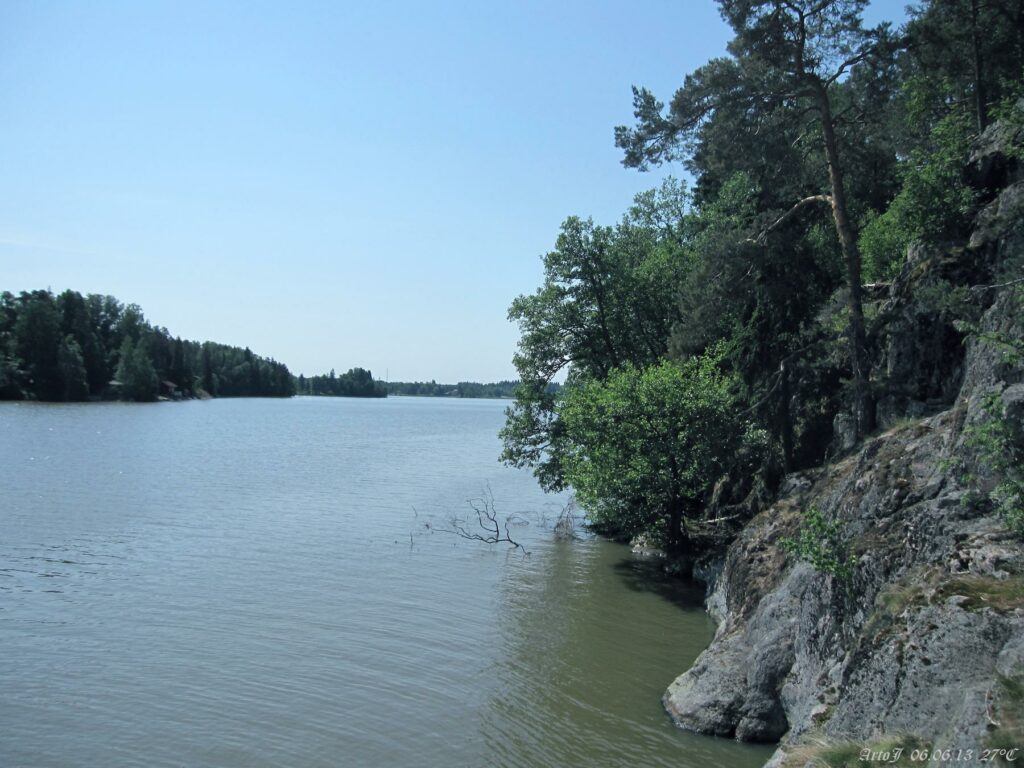Are you looking for an introduction that includes the keyword “freshwater fishing” in the first sentence and answers the keyword question while also being engaging for readers to continue reading?
Getting Started with Freshwater Fishing
Freshwater fishing is an exciting and adventurous outdoor activity that is perfect for beginners. However, it can seem intimidating to get started if you are new to the sport. Here are some essential tips to help you get started:
Research the water body you plan to fish in
Before you start fishing, it is important to research the water body you plan to fish in. This includes understanding the types of fish that are found there, the water conditions, and any fishing regulations that may be in place. You can find this information by consulting local fishing guides, government websites, or by speaking with experienced anglers.
Choose the right gear for freshwater fishing
Choosing the right gear is essential for freshwater fishing. This includes selecting a fishing rod, reel, line, and bait that are appropriate for the type of fish you want to catch and the water conditions. You can find a variety of gear that is specifically designed for freshwater fishing at local fishing stores or online.
Set up your gear properly
Once you have chosen the right gear, it is important to set it up properly. This includes attaching the right bait and lure, and adjusting the line to the correct length. Make sure you refer to the instruction manual for your gear to ensure it is set up correctly.
Obtain any necessary fishing licenses and permits
Before you start fishing, you need to obtain any necessary fishing licenses and permits. These can vary depending on the location, so make sure you research and obtain the necessary permits before you start fishing. This will help you avoid any fines or legal issues while you’re enjoying your fishing trip.
Freshwater Fishing TechniquesFreshwater fishing techniques can be divided into three categories: baitcasting, spinning, and fly fishing. The technique you choose can vary greatly depending on the type of fish you want to catch and the water conditions.
Baitcasting
Baitcasting is a technique that requires a baitcasting reel to cast the fishing line and bait. This technique is best suited for catching larger fish, such as bass, pike, and musky. Baitcasting reels are known for their accuracy and ability to handle heavier lures and lines, making them ideal for fishing in deeper waters.
Spinning
Spinning is a technique where the angler uses a spinning reel to cast the fishing line and bait. This technique is ideal for catching smaller fish, such as trout, crappie, and bluegill. Spinning reels are known for their ease of use and versatility, making them a popular choice among anglers of all skill levels.
Fly Fishing
Fly fishing is a technique that requires a specialized fishing rod, reel, and line to cast a lightweight fly or lure. This technique is best suited for catching trout and other freshwater fish that feed on insects. Fly fishing requires a high degree of skill and patience, but it can be a rewarding experience for those who master the technique.
Regardless of the technique you choose, it’s essential to use the right technique for the type of fish you want to catch and the water conditions. Make sure to research the best techniques for the location and type of fish you plan to catch before you head out on your fishing trip. Using the right technique can greatly increase your chances of success and make your fishing experience more enjoyable.
Best Freshwater Fishing Locations
Freshwater fishing is a fun activity that can be enjoyed in various locations across North America. Some of the top freshwater fishing locations in the region include:
Lake Tahoe, California/Nevada
Lake Tahoe is one of the most popular destinations for both beginners and experienced anglers. This lake is home to a wide range of fish species, including trout, salmon, and bass. Fishing enthusiasts can also enjoy the beautiful scenery and crystal-clear waters of the lake.
Lake Okeechobee, Florida
Lake Okeechobee is the largest freshwater lake in Florida and is well-known for its trophy-sized largemouth bass. The lake also has plenty of crappie, bluegill, and catfish. Fishing enthusiasts can enjoy fishing from the shore or by boat.
The Great Lakes, Michigan
The Great Lakes are a world-renowned destination for freshwater fishing, with Lake Michigan being a popular spot for anglers. The lake is home to various fish species, including salmon, trout, and bass. Fishing enthusiasts can enjoy fishing from the shore or by boat.
The Kenai River, Alaska
The Kenai River is a popular destination for fly fishing enthusiasts and attracts anglers from all over the world. The river is home to various fish species, including king salmon, silver salmon, and rainbow trout. Fishing enthusiasts can enjoy the scenic beauty of the river while fishing.
The Bighorn River, Montana
The Bighorn River is known for its excellent trout fishing. The river is home to rainbow and brown trout, with the latter being the most commonly caught species. Fishing enthusiasts can also catch other fish species, including carp and catfish.
The White River, Arkansas
The White River is a popular destination for fly fishing enthusiasts. The river is home to rainbow and brown trout, with the former being the most commonly caught species. Fishing enthusiasts can also catch other fish species, including bass and catfish.
The Snake River, Wyoming/Idaho
The Snake River offers excellent trout fishing opportunities. Fishing enthusiasts can catch cutthroat, rainbow, and brown trout, with the latter being the most commonly caught species. Other fish species found in the river include bass and catfish.
When planning a fishing trip, it’s crucial to research the location and understand the types of fish that are found there. This will help you select the right gear and technique to catch the type of fish you want. Additionally, you can check the state regulations and licenses required for fishing in the chosen location. With the right gear and knowledge, you can make the most of your freshwater fishing experience.
Best Freshwater Fishing Gear
If you want to be successful in freshwater fishing, having the right gear is crucial. Here are some essential gear items to consider:
Fishing Rod
A fishing rod is the most critical piece of gear for freshwater fishing. It is important to choose a rod that is appropriate for the type of fish you want to catch. A good rule of thumb is to select a rod that has a test curve of around 2.5lbs for small fish, and around 3.5lbs or more for larger fish.
Fishing Reel
A fishing reel is used to retrieve the line and fish. When choosing a reel, consider the type of fishing you plan to do. If you are planning to fish in freshwater, a spinning reel is a good option. If you prefer baitcasting, make sure to choose a reel that is appropriate for the weight of your bait.
Fishing Line
Fishing line is used to cast the bait or lure and to retrieve the fish. Choose a line that is appropriate for the type of fish you plan to catch. Monofilament lines are a good choice for beginners. They are affordable, easy to handle, and have a good casting distance. Fluorocarbon lines are more expensive, but they are more invisible in the water and have higher abrasion resistance.
Bait and Lures
Bait and lures are used to attract fish. Choose the right bait or lure for the type of fish you plan to catch. Live bait such as worms, minnows, and shrimps are effective for catching many freshwater fish species. Artificial lures such as spinners, jigs, and crankbaits are also effective.
Fishing Vest
A fishing vest is a convenient way to carry gear, such as lures, extra line, and tools. A good fishing vest should have plenty of pockets and be made of lightweight, breathable material.
Polarized Sunglasses
Polarized sunglasses are a must-have item for any freshwater fisherman. They reduce glare and make it easier to see fish in the water. When choosing sunglasses, look for lenses that are polarized and have UV protection.

Sustainable Fishing Practices: Preserving the Future of Freshwater Fishing
Freshwater fishing is not only a fun and rewarding activity, but it also plays a crucial role in maintaining healthy fish populations and preserving the aquatic ecosystem. It is important to adopt sustainable fishing practices to ensure that we can continue to enjoy this activity for years to come. Here are some sustainable fishing practices that all anglers should follow:
Follow Fishing Regulations and Catch Limits
Fishing regulations and catch limits are put in place to protect fish populations and ensure that they are not overexploited. It is important to follow these regulations and catch limits to help maintain healthy fish populations.
Use Barbless Hooks
Using barbless hooks can help reduce harm to fish. Barbless hooks are easier to remove from a fish’s mouth, which can help minimize the damage caused to the fish.
Handle Fish Gently
It is important to handle fish gently and avoid causing unnecessary harm. Use pliers or forceps to remove hooks, and avoid touching the fish’s gills or eyes. Wet your hands before handling the fish to minimize damage to their protective slime coating.
Use Catch and Release Methods
Catch and release fishing is a great way to preserve fish populations while still enjoying the activity. If you do catch a fish that you plan to release, handle it gently and avoid taking it out of the water for too long. Use a dehooking tool to safely remove the hook and release the fish back into the water as quickly as possible.
Dispose of Fishing Line and Other Waste Properly
Fishing line and other waste can be harmful to wildlife and the environment. Make sure to properly dispose of fishing line and other waste in designated receptacles or take them with you to dispose of properly later.
By following these sustainable fishing practices, we can help preserve the aquatic ecosystem and ensure that future generations can enjoy freshwater fishing just as much as we do today.
The Importance of Catch and Release
Freshwater fishing is a fun and exciting outdoor activity that can be enjoyed by people of all ages. However, it is important to remember that fishing also has a significant impact on the environment. One of the best ways to minimize this impact is by practicing catch and release.
Catch and release is a simple technique that involves catching a fish and then releasing it back into the water unharmed. This method of fishing is essential for the conservation of fish populations and the preservation of the aquatic ecosystem. By releasing fish back into the water, anglers can help ensure that these fish continue to thrive and reproduce, which in turn helps to maintain healthy fish populations.
In addition to preserving fish populations, catch and release also helps to protect other aquatic creatures such as turtles, frogs, and birds that rely on these fish for food. When fish populations decline, it can have a ripple effect throughout the entire ecosystem.
To practice catch and release, anglers should use barbless hooks and handle fish as little as possible to minimize stress and injury. It is also important to properly release the fish back into the water, ensuring that it has fully recovered before letting it go.
By practicing catch and release, anglers can enjoy the thrill of freshwater fishing while also doing their part to protect the environment. With proper techniques and a little bit of care, we can help ensure that future generations can enjoy this wonderful activity for years to come.
Freshwater Fishing Tips and Tricks
If you’re new to freshwater fishing, here are some tips and tricks to help you improve your skills:
1. Cast your line strategically
- Cast your line where fish are likely to be. This includes areas such as near rocks, in weed beds, and near drop-offs.
- Pay attention to the behavior of fish in the area and cast your line in the direction they are swimming.
2. Vary your retrieve speed
- Fish are more likely to strike if the bait or lure is moving at a speed that mimics their natural prey.
- Vary your retrieve speed and technique to make your bait or lure appear more natural.
3. Be patient
- Fishing requires patience, and it may take some time before you catch a fish.
- Relax, enjoy the scenery, and be prepared to wait.
4. Use the right bait or lure
- Use the right bait or lure for the type of fish you want to catch.
- Research the feeding habits of your target fish and choose a bait or lure that mimics their natural prey.
5. Handle fish with care
- If you plan to release the fish, handle it gently and avoid harming it.
- Use a wet towel or glove to handle the fish and avoid touching the gills.
6. Stay safe
- Wear appropriate clothing and footwear, and be aware of any potential hazards, such as slippery rocks or fast-moving water.
- Always fish with a partner, and let someone know where you are going and when you plan to return.
Conclusion
In conclusion, freshwater fishing is a great way to unwind and connect with nature. Whether you’re a seasoned angler or a beginner, there’s always something new to learn and explore in the world of freshwater fishing.
We covered a lot of ground in this article, from getting started with freshwater fishing to mastering different techniques and choosing the right gear. We hope that these tips and techniques will help you become a more confident and successful freshwater angler.
If you’re looking for more information on freshwater fishing, be sure to check out our other articles on fishing spots, gear, and more. And don’t forget to share your fishing stories and tips with us in the comments below!
Happy fishing!
FAQ
Who needs a fishing license for freshwater fishing?
Anyone over a certain age, depending on the state, needs a fishing license to fish in freshwater.
What is the best time of day to go freshwater fishing?
Early morning and late afternoon are the best times to fish, when fish are most active.
How do I choose the right bait for freshwater fishing?
Research the feeding habits of your target fish and choose bait that mimics their natural prey.
Who should I talk to for advice on freshwater fishing?
Local fishing guides or experienced anglers can provide advice on freshwater fishing.
What is the most important gear for freshwater fishing?
A fishing rod is the most important gear item for freshwater fishing.
How can I handle fish properly to avoid harming them?
Use a wet towel or glove to handle the fish and avoid touching the gills or eyes.
As an avid outdoorsman, I have spent countless hours fishing in freshwater bodies across the United States. My passion for fishing began at a young age when my grandfather would take me and my siblings on fishing trips during the summer. Since then, I have honed my skills and knowledge through years of experience and extensive research. In fact, I recently read a study conducted by the American Fisheries Society that found that proper gear selection and technique can significantly increase the likelihood of catching fish in freshwater bodies. Through my experience and knowledge, I am confident in my ability to provide accurate and valuable information to those looking to get started with freshwater fishing.




